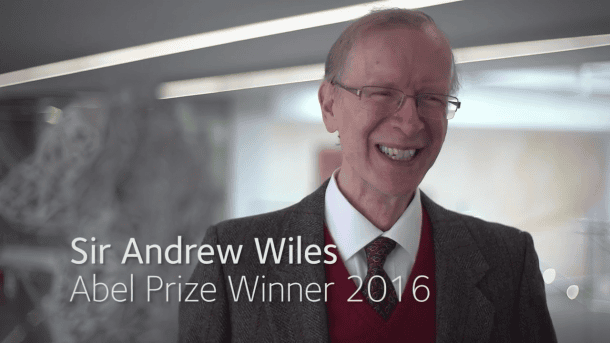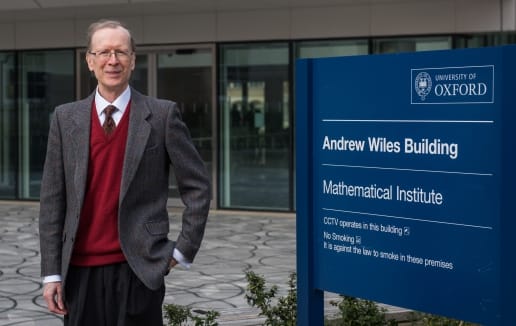Sir Andrew John Wiles, a British mathematician, and a Royal Society Research Professor at the University of Oxford just won the Abel Prize 2016, worth $700,000 for solving the toughest mathematical problem in the world. The Abel prize is like the Nobel Prize but for mathematics, awarded by the Norwegian Academy of Science and Letters.

The Fermat’s last theorem was a part of the Guinness Book of World Records, as the most difficult mathematical problem having the largest number of unsuccessful proofs, before Andrew Wiles published its proof in 1995. 358 years of effort were consumed to solve the problem. The theorem was first conjectured by Pierre de Fermat in 1637 in the margin copy of Arithmatecia. Fermat claimed that he did have the proof, but it was too large to fit in the margin.
The Fermat’s Last Theorem states that for the equation an + bn = cn, there are no three positive integers a, b, c that can satisfy it for any value of n greater than 2.
Andrew Wiles stumbled upon a book named The Last Problem in his local library when he was ten years of age. The book was a story of the struggles of solving the Fermat’s Last Theorem. From that day, he was bent on finding the solution to the centuries old problem. After a struggle that lasted three decades, Wiles finally cracked the solution in 1994. More than ten years later, for his incredible contribution in Mathematics, Wiles was eventually awarded the Abel prize on 24th of May, 2016 in Oslo.

Source: The Abel Prize
Speaking to the Guardian, Andrew Wiles said,
“This problem captivated me. It was the most famous popular problem in mathematics, although I didn’t know that at the time. What amazed me was that there were some unsolved problems that someone who was 10 years old could understand and even try. And I tried it throughout my teenage years. When I first went to college I thought I had a proof, but it turned out to be wrong.”
What are your thoughts on the achievement of Andrew Wiles? Comment below!



Congratulations, Mr. Wiles!! An amazing achievement!! God bless you, sir!
So, whats the answer ? a,b,c values ?